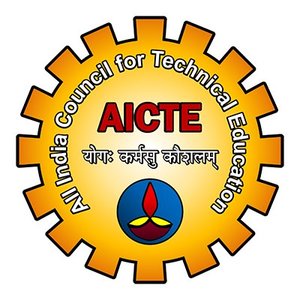What is the full form of AICTEAICTE: All India Council for Technical EducationAICTE stands for All India Council for Technical Education. It is a national-level council for technical education and management in India. It is a statutory body of the Government of India which has the authority of planning and coordinating the development of technical education throughout the country. It provides approval for colleges that o University affiliated Engineering and Management degree programs. It is the only authority to provide approval to open a new technical college. It is governed by the Department of Higher Education and was given legal status by a Parliamentary Act in 1987. The AICTE is solely accountable for the creation and direction of technical education in the nation's institutions. 
HistoryAICTE was created in November 1945 to plan and promote the growth of technical education in India. Later, according to the 1987 Act, it gets constitutional status. It has headquarters in New Delhi and its regional offices are in Kolkata, Kanpur, Chennai, Bangalore, Mumbai, Hyderabad, Chandigarh, Guwahati, Gurgoan and Bhopal. UsageIt was created to open new technical institutes in India. It offers new courses in technical institutes. It recognizes colleges providing degrees in engineering. It is also responsible for the maintenance of technical standards, accreditation of quality assurance and evaluation of technical education. AICTE monitors the following courses:
The All India Council for Technical Education (AICTE)'s objectives:
Units under AICTEUnder AICTE, the following primary bureaus are there:
Moreover, AICTE also has ten Boards of Studies, including those for management, applied arts and crafts, hotel management, undergraduate engineering, vocational, postgraduate engineering and research, town and country planning, architecture, pharmacy, and catering technology education. Mission:
Vision:"Be a world-class organisation leading technological and socio-economic development of the country by enhancing technical manpower's competitiveness globally and by ensuring high-quality technical education for all segments of society." AICTE's obligations and roles in technical education:
What Separates AICTE from UGC?The fact that the UGC deals with all types of institutions and provides all courses, while the AICTE only deals with technical institutes, is a key distinction between the UGC (University Grants Commission) and AICTE. The UGC is in charge of approving the universities. It also donates money to linked institutions and universities. A legislative council, the AICTE promotes coordinated growth and provides technical education in the nation. The AICTE is linked with all technical colleges, MBA programmes, and pharmacy schools.
Next TopicFull Form
|
 For Videos Join Our Youtube Channel: Join Now
For Videos Join Our Youtube Channel: Join Now
Feedback
- Send your Feedback to [email protected]
Help Others, Please Share










